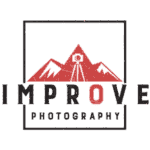There are many ways to improve your photography but few are as effective as learning from a mentor. This type of approach requires commitment and effort by both the mentor and student, and so a strong relationship between the two parties must also be present. In this article, I will discuss why you might need a mentor and what to look for when you’ve decided you need one.
What is a Mentor?
A mentor is typically a trusted and experienced advisor. They will provide structure and guidance to your development as a photography over an extended period of time. The relationship will be richer and more involved compared with development experiences at a workshop or camera club. A mentor will look at more than just your best 6 images. They will look at your portfolio over time and help you reach your goals through practical experience, review, and planning.
Do I Need a Mentor?
Having a mentor can be beneficial no matter if you are a seasoned professional or if photography is your weekend escape. However, for this article, I will be looking at mentorship for the amateur or hobbyist photographer who wishes to make significant improvements to their photography or maybe even go professional.
As an amateur or hobbyist photographer, many of you will have already been on a photography workshop or even be a member of a local photography club or group. While you may gain a lot of knowledge from these interactions, having a mentor is typically a more involved, in-depth experience. It is important to ask yourself why you want a photography mentor.
Setting Goals

One of the main reasons people look for a mentor is to help with the achievement of a goal. A goal is something you want to achieve in the long term. This could be “I want to be a professional landscape photographer”, or “I want to publish a body of work in a book”. Whatever your goal is it should be clear and unambiguous. “I want to be a better photographer” lacks definition and is difficult to measure. It’s also worth thinking about what it is that’s preventing you achieving your goals.
Once you have your goals you need to set objectives that will help you reach those goals. You may already have an idea of what you might those objectives might be or you may end up agreeing what they are when you have a mentor. Either way, your objectives should be specific, realistic, and measurable. By achieving your objectives, you will soon find that reaching your goals seems more achievable.
The other thing to consider when looking at mentor is how much involvement you might want from them. This could be meeting up for 30 minutes every few months, or something more involved.
Don’t worry if you find yourself modifying your goals or objectives, or the level of involvement you want from a mentor. Things change and it’s good to remain flexible.
What to look for in a Mentor
When you think that a mentor would benefit your photography, and you have defined your goals it is time to find a mentor. However, the journey towards finding and having a mentor isn’t instantaneous. It will be built up over time as you build a relationship with someone.
Relationships can be complex and require work, but here are some of the things you should look for in a mentor.
- Their work should inspire you – Does the work of this person inspire you? Do they produce images of the style you like? There is little reason in having a mentor that does not inspire you so look for a photographer that delivers the type and level of work you want to produce.
- They should be a role model – Being inspired by someone’s work doesn’t necessarily make them a good role model. They should have achieved what you want to achieve. This will make your goals seem more achievable and you will be working with a person that’s realised those goals themselves.
- They should have the right qualities – There are many great photographers out there producing stunning bodies of work, but that doesn’t necessarily mean they would make for a good photography mentor. A mentor should be a good listener and be able to provide guidance and support when needed.
- They should be an educator – Try to look for photographers that already run workshops or personal tuition (1-2-1). If they are already providing these services then it’s always worth going with this option first. You may find you start with a workshop, then do a couple of individual tuition sessions even before you start to discuss mentorship.
- They should be local – Though mentoring can work remotely via video chat, email, or telephone, working with a nearby mentor does have some additional advantages. Depending on the level of interaction you want or need, being able to meet your mentor more frequently to discuss your goals or take photographs may strengthen the relationship making it more successful for both parties.
One last thing you should look for and it’s not necessarily critical, but you should have some common interests outside of photography. For example, if you are planning to go out on regular shoots as part of your mentorship programme, having something else to talk about apart from photography is a bonus. It will lead to a more relaxed environment and you won’t feel the need to chat about photography all the time!
Starting a Mentor / Student Relationship
Some photographers will offer a mentorship service as part of their tuition or education services. If that person is a right fit for you then this is a great way to start the journey.
Not all photographers who run workshops or provide personal tuition will also provide mentorship services. This is where you may find that through attending their workshops and building a relationship through personal tuition that they naturally become your mentor. It’s likely to start with you just asking for advice and as time goes on you will work together in a more structured way as part of your personal tuition. You may even find that a person becomes your mentor over time without it ever becoming formal.
Either way, your role with your mentor should start slowly. At the very least I would recommend attending a workshop followed by a few personal tuition sessions before you even consider mentorship with someone.
Like any good relationship, it’s important not to rush into it!
If you have any thoughts on this article, are considering getting a mentor, or already have a mentor, let me know in the comments below.

I have always wanted my students to delve into photography or at least know how to take good photos since I am so much into rocks and rock formation…the devil is in the detail. I will share this article with them, maybe they might be inspired like I have to get a photography mentor ASAP! Thanks, very informative.
Hey Thomas, thanks for reading the article and for leaving a comment. Very happy to hear that you found it informative. 🙂
An informative article Julian. Thanks buddy. Tony
Thanks Tony, nice to see you over here as well!
Great article Julian, well worth the read.
Tim
Many thanks Tim!